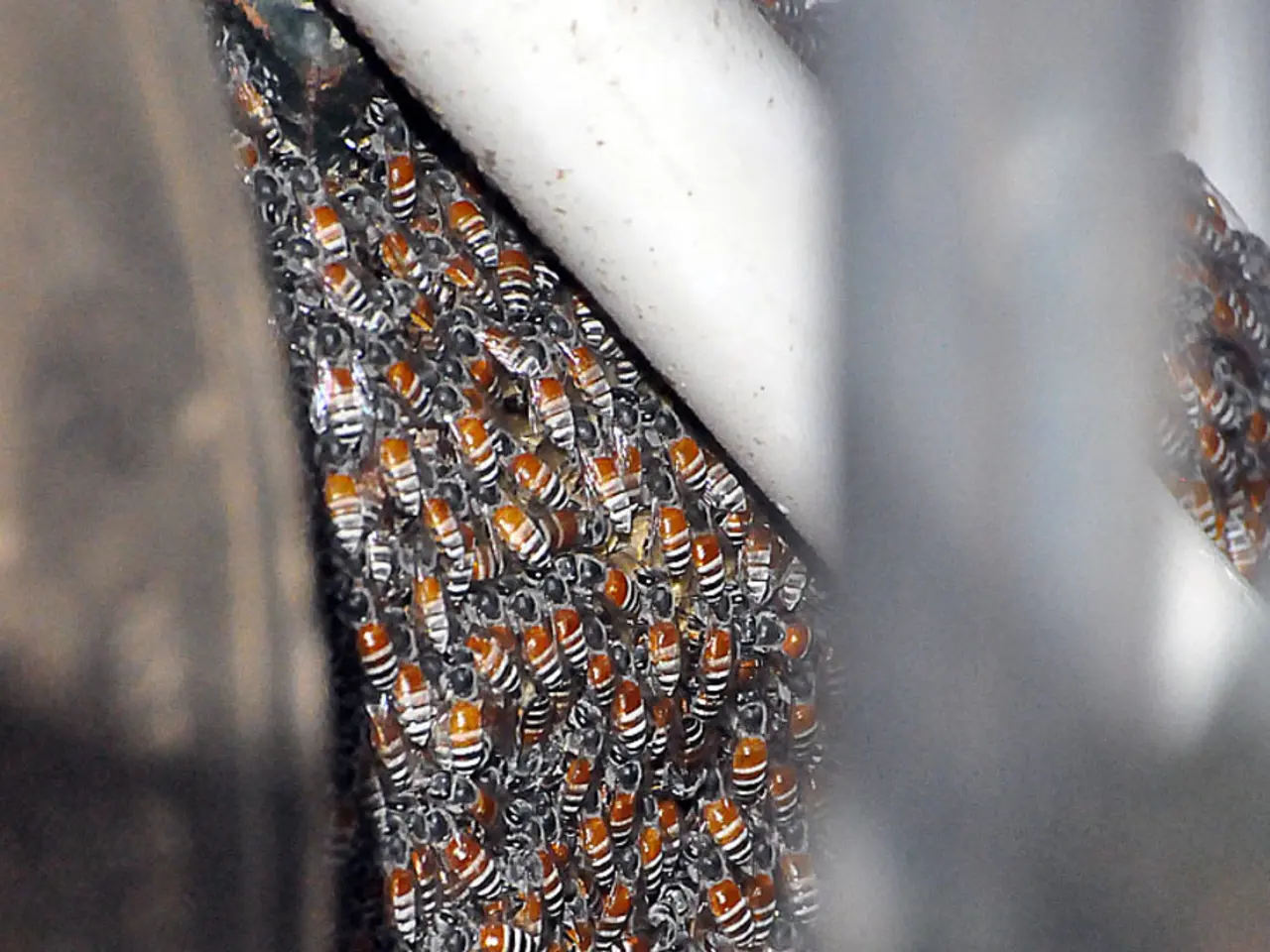Regulatory Implementation Acts will be enacted, detailing how this legislation should be implemented.
After a year of strict measures, the restriction zone for American Foulbrood (AFB) in Blankenfelde-Mahlow, Germany, has been lifted. The announcement was made by the Veterinary and Food Safety Office Teltow-Fläming following the successful combating of the disease in the area.
American Foulbrood is a notifiable animal disease, posing a threat to bee brood. It is caused by the spore-forming bacterium Paenibacillus larvae and is harmful only to the bee larvae. Adult bees, however, can carry and spread the disease without being affected themselves.
Symptoms of AFB include infected larvae that die after cell capping and turn into a dark, sticky, glue-like mass. Brood cells may have an irregular, sunken, or punctured appearance, and the odor of infected brood comb can be unpleasant. Larvae may appear twisted or discolored before death, and colonies may show reduced brood, brood patchiness, and eventual weakening or collapse due to loss of young bees.
Treatment methods for AFB have historically used antibiotics like oxytetracycline, but widespread resistance has developed in P. larvae strains. Tylosin is a newer antibiotic effective against some oxytetracycline-resistant P. larvae strains, but it may persist in honey and affect bee gut microbiota, potentially influencing colony health for months after treatment. Due to spore persistence and resistance, antibiotics do not eliminate spores and are mainly used to control outbreaks.
Best management practices include destroying infected brood frames or entire colonies (burning or freezing frames) to prevent spread. Maintaining strong hygienic behavior in bees through selective breeding can also help manage AFB. Early detection and strict sanitation are critical because adult bees can spread spores to other hives.
In July 2024, a restriction zone was declared in Blankenfelde-Mahlow due to the detection of AFB. During this period, no bees, hives, combs, comb parts, comb residues, wax, honey, feed supplies, beehives, or used equipment could be removed from the apiary. All 325 colonies in Blankenfelde-Mahlow were inspected in 2024, and the infected colonies were destroyed.
Now that the protective measures for AFB have been discontinued, beekeepers in Blankenfelde-Mahlow can resume their usual activities, including moving bees to different pastures and trading colonies. It is essential to note that honey and other bee products can be consumed without concern despite the presence of AFB, as it is not harmful to humans or adult bees.
The lift of the restriction zone marks a significant milestone in the management of AFB in Blankenfelde-Mahlow. However, continued vigilance and strict sanitation practices are necessary to prevent future outbreaks and protect the health of bee colonies.







